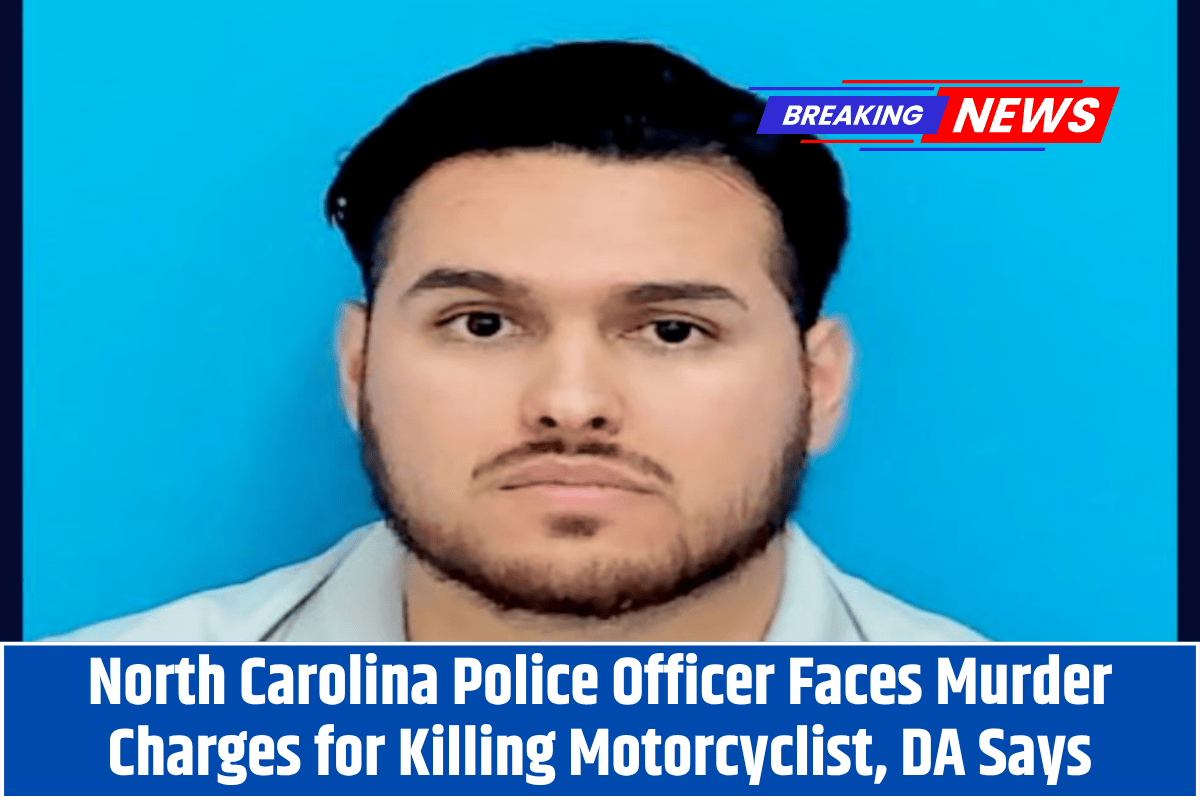A North Carolina police officer is facing serious legal consequences for the death of a motorcyclist who was shot after allegedly refusing to stop for a traffic violation.
The officer, 28-year-old Carlos Alverto Uribe, has been charged with second-degree murder in the death of Camden Childers, a 21-year-old man, on June 26.
Uribe, a lieutenant with the Newton Police Department, is currently on administrative leave without pay as he awaits trial.
The Incident and Investigation
The tragic event took place after a series of high-speed chases involving Childers, who had failed to stop when police attempted to pull him over for several violations, including speeding, reckless driving, and failure to display a registration plate.
The pursuit, which started before midnight, escalated with three separate chases. Eventually, Childers collided with a patrol car in a cul-de-sac in Conover, about 45 miles northwest of Charlotte.
At this point, the police said there was a brief physical altercation between Uribe and Childers, which ended with the officer shooting the motorcyclist. Emergency responders attempted life-saving measures, but Childers later died in the hospital from his injuries.
The Charge Against Officer Uribe
Following the incident, the North Carolina State Bureau of Investigation (SBI) conducted an investigation, which was initiated by the Newton Police Department itself. The findings were handed over to the Catawba County District Attorney’s Office, which indicted Uribe on second-degree murder charges.
The investigation relied on body-worn camera footage, dash camera footage, witness interviews, and other materials to determine that Uribe’s use of force was not legally justified.
District Attorney Scott Reilly emphasized the importance of accountability in such cases, stating that even though he had previously found police shootings to be justified in the past, excessive or unlawful force resulting in death must be addressed, regardless of the officer’s position.
Details of the Shooting
On the night of the incident, after the final chase, Childers’ motorcycle crashed into a patrol vehicle. Prosecutors revealed that, at this point, Childers had raised his hands in compliance with police commands. Despite this, Uribe allegedly kicked him in the abdomen, knocked him down, and shot him in the chest.
Prosecutors pointed out that Childers’ hands were empty and raised in the air, contradicting Uribe’s claim that the motorcyclist had reached for an officer’s gun. The shooting was allegedly followed by Uribe’s statement, “That’s what you get for going for an officer’s gun.”
Body-worn camera footage from the scene did not support Uribe’s narrative, leading prosecutors to argue that the use of force was unjustified and excessive.
Court Appearance and Legal Process
Following his indictment, Uribe turned himself in and appeared in court, where he was formally charged with second-degree murder. He was later released on a $100,000 bail, with conditions including no contact with Childers’ family and the surrender of his passport.
The case has sparked widespread attention, as it raises important questions about the use of force by law enforcement officers. The District Attorney’s statement underscored the significance of fairness, due process, and accountability in ensuring that justice is served, no matter the person involved.
As the case moves forward, it will likely continue to be a topic of intense public scrutiny.






